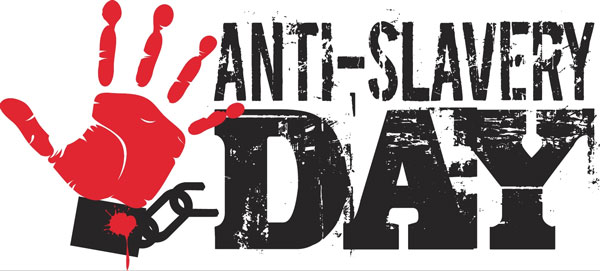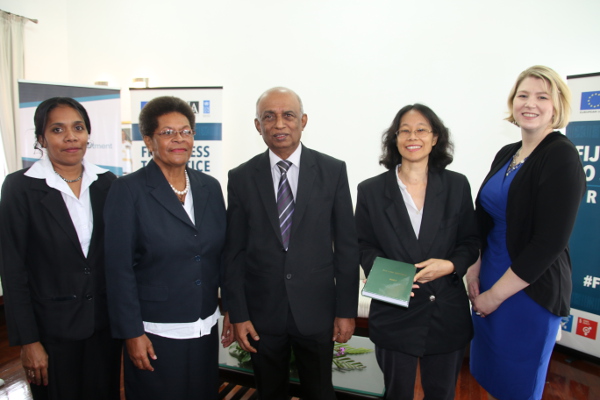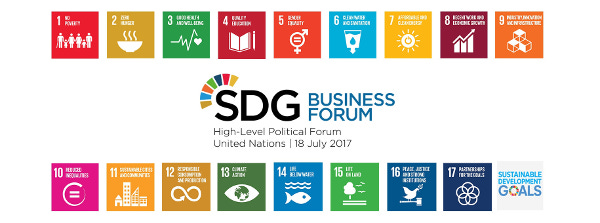Brightmine,
17 November 2017
The Government's scheme for individuals to apply for tribunal fees refunds has been rolled out to all applicants, after a "successful opening phase of the scheme". This reduces inequalities between richer and poorer employees and between richer companies and poorer employees contributing to SDG 10.
Elsevier,
Elsevier Connect, November 13, 2017
The Cancer Moonshot initiative directly supports SDG 3, Target 3.4 and Indicator 3.4.1. Joe Biden, former VP, and YS Chi, Chairman of Elsevier and Director of Corporate Affairs at RELX Group, received Humanitarian of the Year awards from the United Nations Association of New York (UNA-NY).
LexisNexis Legal & Professional,
BIS blog, 17th October 2017
Modern slavery risks have risen across the world over the last year, including in 20 of the 28 member states of the EU. On Anti-Slavery Day, this blog looks at the increased risks and numbers of victims of forced labour in supply chains, and how to mitigate these risks contributing to goal 8 (decent work and economic growth).
Contributing to SDGs 17 (Partnerships for the Goals) and 16 (Peace, Justice and Strong Institutions), The United Nations collaborate with criminologists, sociologists, and practitioners to produce guidance on preventing the use of children in violent non-state armed groups.
Brightmine,
26 September 2017
A new criminal corporate offence of failing to prevent facilitation of tax evasion comes into effect on 30 September 2017 in the UK. This development supports SDG 8 Decent work and economic growth and SDG 16 Peace, justice and strong institutions.
Brightmine,
14 September 2017
Large employers in the UK with a financial year running from April to March should be gearing up to publish their second annual modern slavery statement by the end of September 2017. Modern slavery statements support SDG 8.7 to take immediate and effective measures to eradicate forced labour, end modern slavery and human trafficking.
Brightmine,
16 August 2017
SDG target 10.3 is concerned with eliminating discriminatory laws. In the UK, it has been successfully argued before an employment tribunal that a discrimination claim - thrown out during the fees regime because the claimant did not pay - should be revived. This sets a precedent for reducing inequalities based on the ability to pay.
LexisNexis Legal & Professional,
LexisNexis Australia, 8 August 2017
The goal of SDG 16.3, to promote the rule of law at the national and international levels and to ensure equal access to justice for all, relies to a large extent on access to the primary materials. The stability of the legal system of a State is usually assessed by the availability of its laws and their application and LexisNexis is proud to have been chosen as a partner to continue publication of the authorised Fiji Law Reports. Partnership for the goals is key to their success, as envisaged by SDG 17.
RELX,
Press Release, August 2017
The RELX Group Environmental Challenge, with a $50,000 prize for the first place entry and a $25,000 prize for the second place entry, is awarded to projects that provide sustainable access to safe water where it is presently at risk and/or access to improved sanitation. This directly assists SDG 6.1 and 6.2 to achieve universal and equitable access to safe and affordable drinking water and access to adequate and equitable sanitation and hygiene, for all. Find out more about the 2017 winners.
LexisNexis Legal & Professional,
LexisNexis Blog, August 2017
In July the 2017 Sustainable Development Goals (SDG) Business Forum recognised the critical role of business in delivering on the promise of sustainable and inclusive development. In this article, we elaborate on the SDG business case, and how businesses can engage with the SDG framework; driving business growth and productivity, whilst contributing to the better world envisaged by the 2030 Agenda for Sustainable Development.





